Marc Aidinoff AB '12
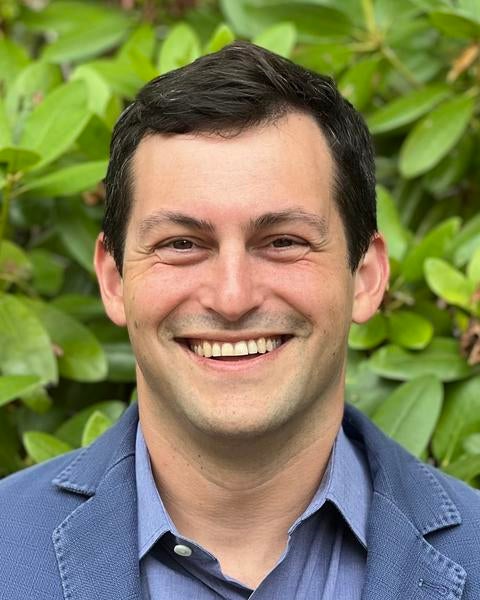 Marc Aidinoff AB '12 is a historian of science, technology, and the state, as well as a public policymaker. An assistant professor in the Department of History of Science at Harvard University, Aidinoff researches the interplay between digital technologies and domestic policy in the United States. His forthcoming book, Rebooting Liberalism: The Computerization of the Social Contract, 1974-2004, historicizes seemingly bedrock principles of U.S. governance, including the social contract, by tracing the computerization of welfare administration. In Rebooting Liberalism, he examines the technological and policy work of liberals with a sharp focus on the Southern political context in which their ideas and practices developed. Across his scholarship Aidinoff seeks to recognize both the distinct contemporary reality and long historical trajectory of artificial intelligence and automated systems to structure daily life.
Marc Aidinoff AB '12 is a historian of science, technology, and the state, as well as a public policymaker. An assistant professor in the Department of History of Science at Harvard University, Aidinoff researches the interplay between digital technologies and domestic policy in the United States. His forthcoming book, Rebooting Liberalism: The Computerization of the Social Contract, 1974-2004, historicizes seemingly bedrock principles of U.S. governance, including the social contract, by tracing the computerization of welfare administration. In Rebooting Liberalism, he examines the technological and policy work of liberals with a sharp focus on the Southern political context in which their ideas and practices developed. Across his scholarship Aidinoff seeks to recognize both the distinct contemporary reality and long historical trajectory of artificial intelligence and automated systems to structure daily life.
A strong believer in the value of historical inquiry and the insights of science studies both to analyze and to craft public policy, Aidinoff recently served as Chief of Staff and Senior Advisor in the White House Office of Science and Technology Policy, where he helped lead a team of 150 policymakers on key initiatives including the Blueprint for an AI Bill of Rights and guidance to ensure federally funded research is publicly accessible. Previously, Aidinoff served as a domestic policy advisor in the Obama Administration and a strategic consultant for political campaigns.
Aidinoff is an affiliate of the Science, Technology, and Social Values Lab at the Institute for Advanced Study in Princeton, NJ and the Digital Due Process Clinic at Cornell University. His work has been supported by the Jefferson Scholars Foundation, the Horowitz Foundation for Social Policy, the National Science Foundation, the Association of Centers for the Study of Congress, the Charles Babbage Institute, the MIT Internet Policy Research Initiative, and others. His writing has appeared in Mastery and Drift: Professional-Class Liberals Since the 1960s (University of Chicago Press, 2025), Abstractions and Embodiments: New Histories of Computing and Society (Johns Hopkins University Press, 2022), First Monday, Internet Histories, The Washington Post, and Issues in Science and Technology. He is the co-author of Auditing AI (MIT Press, 2026) and the National Academy of Science’s Realizing the Promise and Minimizing the Perils of AI for Science and the Scientific Community (University of Pennsylvania Press, 2025). Aidinoff completed his Ph.D. at the Massachusetts Institute of Technology.
Ranjay Gulati PhD '93
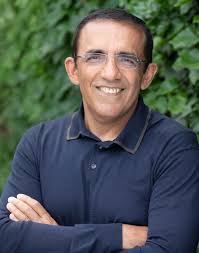 Ranjay Gulati AB '93 is the Paul R. Lawrence MBA Class of 1942 Professor of Business Administration and a distinguished organizational sociologist. He is the author of several books including Deep Purpose: The Heart and Soul of High-Performance Companies (HarperCollins, 2022) and How to Be Bold: The Surprising Science of Everyday Courage (Harper Business, 2025).
Ranjay Gulati AB '93 is the Paul R. Lawrence MBA Class of 1942 Professor of Business Administration and a distinguished organizational sociologist. He is the author of several books including Deep Purpose: The Heart and Soul of High-Performance Companies (HarperCollins, 2022) and How to Be Bold: The Surprising Science of Everyday Courage (Harper Business, 2025).
His pathbreaking research, which focuses on unlocking organizational potential and unleashing human potential, has shown how winning companies—those that prosper both in good times and bad—drive growth and prosperity. At the same time, his research has inspired individuals to unlock possibilities by aligning their own personal purpose with that of their organizations.
The Economist, the Financial Times, and the Economist Intelligence Unit have listed him as among the top handful of business school scholars whose work is most relevant to management practice. He is the recipient of numerous awards for his scholarly research and teaching, including recognition by Thinkers50 as a top management scholar and the CK Prahalad Award for Scholarly Impact on Practice in 2024.
Professor Gulati holds a Ph.D. from Harvard University and lives in Newton, Massachusetts with his wife and two children.
Stephanie M. Jones
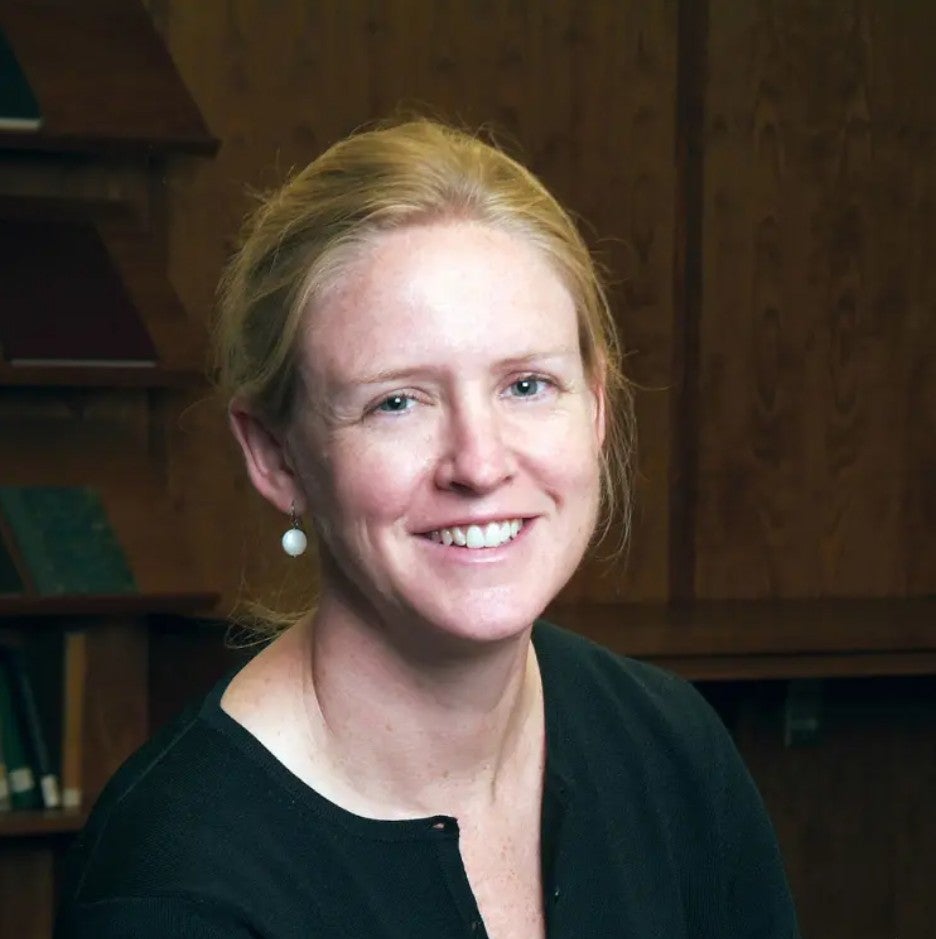 Stephanie Jones' research, anchored in prevention science, focuses on the effects of poverty and exposure to violence on children and youth's social, emotional, and behavioral development. Over the last ten years her work has focused on both evaluation research addressing the impact of preschool and elementary focused social-emotional learning interventions on behavioral and academic outcomes and classroom practices; as well as new curriculum development, implementation, and testing. Jones is a recipient of the Grawemeyer Award in Education for her work with Zigler and Walter Gilliam on A Vision for Universal Preschool Education (Cambridge University Press, 2006) and a recipient of the Joseph E. Zins Early-Career Distinguished Contribution Award for Action Research in Social and Emotional Learning. Jones' research portfolio emphasizes the importance of conducting rigorous scientific research, including program evaluation, that also results in accessible content for early and middle childhood practitioners and policymakers. Her developmental and experimental research investigates the causes and consequences of social-emotional problems and competencies; strategies for altering the pathways that shape children's social-emotional development; and programs, interventions, and pedagogy that foster social-emotional competencies among children, adults, and environments. Her policy-driven research with colleague Nonie Lesaux focuses on the challenge of simultaneously expanding and improving the quality of early childhood education, at scale (The Leading Edge of Early Childhood Education, Harvard Education Press, 2016). Jones serves on numerous national advisory boards and expert consultant groups related to social-emotional development and child and family anti-poverty policies, including the National Boards of Parents as Teachers and Engaging Schools. She consults to program developers, including Sesame Street, and has conducted numerous evaluations of programs and early education efforts, including Reading, Writing, Respect and Resolution, Resolving Conflict Creatively, SECURe, and the Head Start CARES initiative. Across projects and initiatives, Jones maintains a commitment to supporting the alignment of preK-3 curricula and instructional practices.
Stephanie Jones' research, anchored in prevention science, focuses on the effects of poverty and exposure to violence on children and youth's social, emotional, and behavioral development. Over the last ten years her work has focused on both evaluation research addressing the impact of preschool and elementary focused social-emotional learning interventions on behavioral and academic outcomes and classroom practices; as well as new curriculum development, implementation, and testing. Jones is a recipient of the Grawemeyer Award in Education for her work with Zigler and Walter Gilliam on A Vision for Universal Preschool Education (Cambridge University Press, 2006) and a recipient of the Joseph E. Zins Early-Career Distinguished Contribution Award for Action Research in Social and Emotional Learning. Jones' research portfolio emphasizes the importance of conducting rigorous scientific research, including program evaluation, that also results in accessible content for early and middle childhood practitioners and policymakers. Her developmental and experimental research investigates the causes and consequences of social-emotional problems and competencies; strategies for altering the pathways that shape children's social-emotional development; and programs, interventions, and pedagogy that foster social-emotional competencies among children, adults, and environments. Her policy-driven research with colleague Nonie Lesaux focuses on the challenge of simultaneously expanding and improving the quality of early childhood education, at scale (The Leading Edge of Early Childhood Education, Harvard Education Press, 2016). Jones serves on numerous national advisory boards and expert consultant groups related to social-emotional development and child and family anti-poverty policies, including the National Boards of Parents as Teachers and Engaging Schools. She consults to program developers, including Sesame Street, and has conducted numerous evaluations of programs and early education efforts, including Reading, Writing, Respect and Resolution, Resolving Conflict Creatively, SECURe, and the Head Start CARES initiative. Across projects and initiatives, Jones maintains a commitment to supporting the alignment of preK-3 curricula and instructional practices.
David Parkes
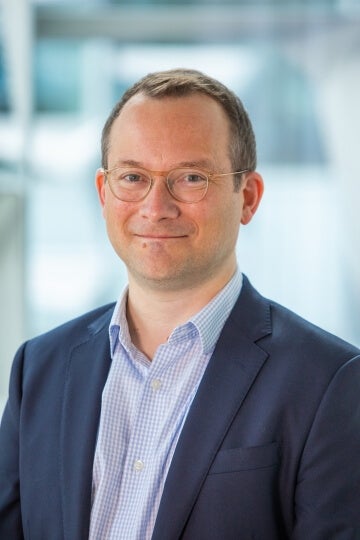 David C. Parkes is the Dean of the Harvard John A. Paulson School of Engineering and Applied Sciences (SEAS) and the George F. Colony Professor of Computer Science.
David C. Parkes is the Dean of the Harvard John A. Paulson School of Engineering and Applied Sciences (SEAS) and the George F. Colony Professor of Computer Science.
A Harvard faculty member since 2001, Parkes founded the EconCS research group at SEAS, which conducts research at the intersection of economics and computer science, especially artificial intelligence and algorithms for social and economic impact. His work focuses on multi-agent AI, computational markets, and the digital economy, including novel mechanism design and incentive engineering methods.
Parkes is a Fellow of the American Association for the Advancement of Science, the Association for Computing Machinery, and the Association for the Advancement of Artificial Intelligence. A celebrated teacher and mentor, he was named Harvard College Professor, twice voted one of Harvard College’s Favorite Professors, and has received the Roslyn Abramson and Capers and Marion McDonald Awards for mentoring and teaching.
He has helped launch a number of initiatives including the Master’s in Data Science (FAS and SEAS), the Harvard Data Science Initiative, and the Harvard Business Analytics Program. Parkes earned his M.Eng. from the University of Oxford and Ph.D. in Computer and Information Science from the University of Pennsylvania.
Amruta Nori-Sarma
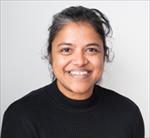 Amruta Nori-Sarma is an Assistant Professor of Environmental Health and Population Sciences at the Harvard T.H. Chan School of Public Health. As an environmental epidemiologist, Dr. Nori-Sarma studies the relationship between environmental exposures associated with climate change and health outcomes in vulnerable communities. Dr. Nori-Sarma aims to understand the impacts of interrelated extreme weather events on mental health across the US utilizing large claims datasets. She also has an interest in evaluating the success of policies put in place to reduce the health impacts of climate change.
Amruta Nori-Sarma is an Assistant Professor of Environmental Health and Population Sciences at the Harvard T.H. Chan School of Public Health. As an environmental epidemiologist, Dr. Nori-Sarma studies the relationship between environmental exposures associated with climate change and health outcomes in vulnerable communities. Dr. Nori-Sarma aims to understand the impacts of interrelated extreme weather events on mental health across the US utilizing large claims datasets. She also has an interest in evaluating the success of policies put in place to reduce the health impacts of climate change.
Additionally, Dr. Nori-Sarma serves as one of the leads of the CAFE RCC, the research coordinating center of the NIH Climate Change and Health Initiative. CAFE, a joint effort with the BU School of Public Health, aims to bring together and amplify the work of a more diverse community of practice in climate and health.
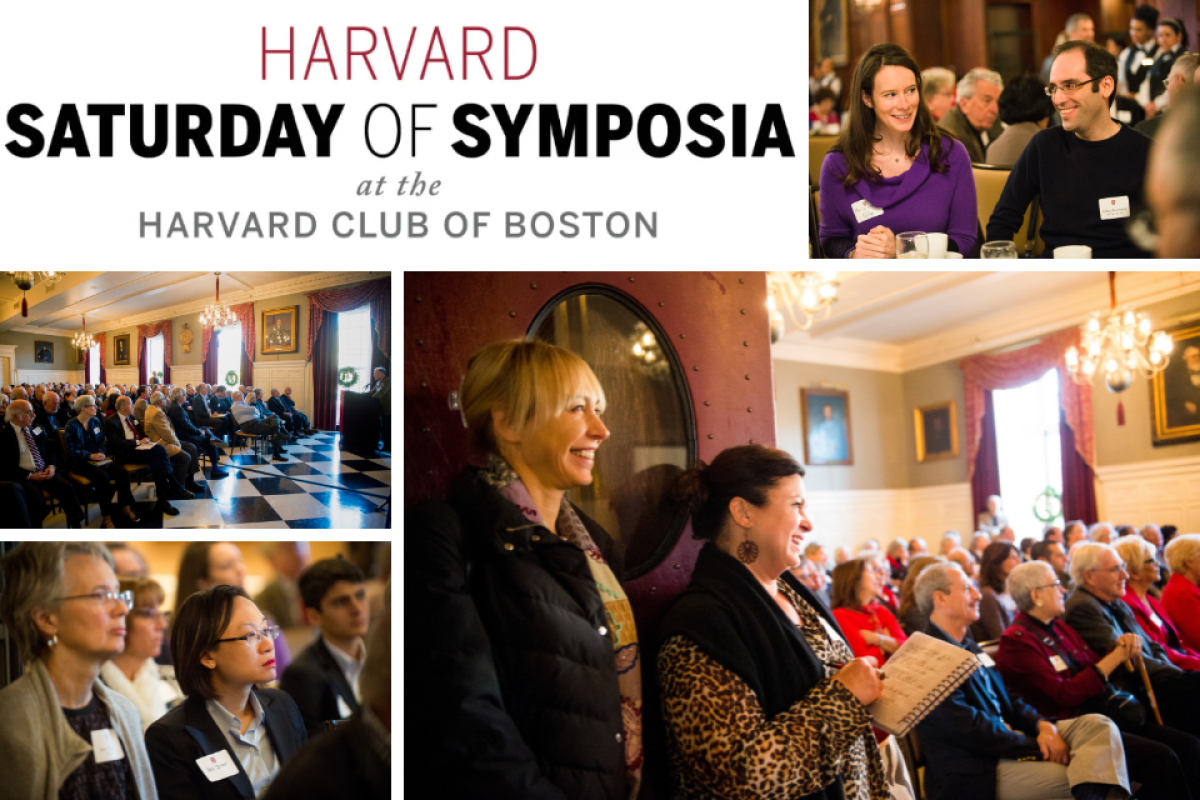
 Marc Aidinoff AB '12 is a historian of science, technology, and the state, as well as a public policymaker. An assistant professor in the Department of History of Science at Harvard University, Aidinoff researches the interplay between digital technologies and domestic policy in the United States. His forthcoming book, Rebooting Liberalism: The Computerization of the Social Contract, 1974-2004,
Marc Aidinoff AB '12 is a historian of science, technology, and the state, as well as a public policymaker. An assistant professor in the Department of History of Science at Harvard University, Aidinoff researches the interplay between digital technologies and domestic policy in the United States. His forthcoming book, Rebooting Liberalism: The Computerization of the Social Contract, 1974-2004, Ranjay Gulati AB '93 is the Paul R. Lawrence MBA Class of 1942 Professor of Business Administration and a distinguished organizational sociologist. He is the author of several books including Deep Purpose: The Heart and Soul of High-Performance Companies (HarperCollins, 2022) and How to Be Bold: The Surprising Science of Everyday Courage (Harper Business, 2025).
Ranjay Gulati AB '93 is the Paul R. Lawrence MBA Class of 1942 Professor of Business Administration and a distinguished organizational sociologist. He is the author of several books including Deep Purpose: The Heart and Soul of High-Performance Companies (HarperCollins, 2022) and How to Be Bold: The Surprising Science of Everyday Courage (Harper Business, 2025). Stephanie Jones' research, anchored in prevention science, focuses on the effects of poverty and exposure to violence on children and youth's social, emotional, and behavioral development. Over the last ten years her work has focused on both evaluation research addressing the impact of preschool and elementary focused social-emotional learning interventions on behavioral and academic outcomes and classroom practices; as well as new curriculum development, implementation, and testing. Jones is a recipient of the Grawemeyer Award in Education for her work with Zigler and Walter Gilliam on A Vision for Universal Preschool Education (Cambridge University Press, 2006) and a recipient of the Joseph E. Zins Early-Career Distinguished Contribution Award for Action Research in Social and Emotional Learning. Jones' research portfolio emphasizes the importance of conducting rigorous scientific research, including program evaluation, that also results in accessible content for early and middle childhood practitioners and policymakers. Her developmental and experimental research investigates the causes and consequences of social-emotional problems and competencies; strategies for altering the pathways that shape children's social-emotional development; and programs, interventions, and pedagogy that foster social-emotional competencies among children, adults, and environments. Her policy-driven research with colleague Nonie Lesaux focuses on the challenge of simultaneously expanding and improving the quality of early childhood education, at scale (The Leading Edge of Early Childhood Education, Harvard Education Press, 2016). Jones serves on numerous national advisory boards and expert consultant groups related to social-emotional development and child and family anti-poverty policies, including the National Boards of Parents as Teachers and Engaging Schools. She consults to program developers, including Sesame Street, and has conducted numerous evaluations of programs and early education efforts, including Reading, Writing, Respect and Resolution, Resolving Conflict Creatively, SECURe, and the Head Start CARES initiative. Across projects and initiatives, Jones maintains a commitment to supporting the alignment of preK-3 curricula and instructional practices.
Stephanie Jones' research, anchored in prevention science, focuses on the effects of poverty and exposure to violence on children and youth's social, emotional, and behavioral development. Over the last ten years her work has focused on both evaluation research addressing the impact of preschool and elementary focused social-emotional learning interventions on behavioral and academic outcomes and classroom practices; as well as new curriculum development, implementation, and testing. Jones is a recipient of the Grawemeyer Award in Education for her work with Zigler and Walter Gilliam on A Vision for Universal Preschool Education (Cambridge University Press, 2006) and a recipient of the Joseph E. Zins Early-Career Distinguished Contribution Award for Action Research in Social and Emotional Learning. Jones' research portfolio emphasizes the importance of conducting rigorous scientific research, including program evaluation, that also results in accessible content for early and middle childhood practitioners and policymakers. Her developmental and experimental research investigates the causes and consequences of social-emotional problems and competencies; strategies for altering the pathways that shape children's social-emotional development; and programs, interventions, and pedagogy that foster social-emotional competencies among children, adults, and environments. Her policy-driven research with colleague Nonie Lesaux focuses on the challenge of simultaneously expanding and improving the quality of early childhood education, at scale (The Leading Edge of Early Childhood Education, Harvard Education Press, 2016). Jones serves on numerous national advisory boards and expert consultant groups related to social-emotional development and child and family anti-poverty policies, including the National Boards of Parents as Teachers and Engaging Schools. She consults to program developers, including Sesame Street, and has conducted numerous evaluations of programs and early education efforts, including Reading, Writing, Respect and Resolution, Resolving Conflict Creatively, SECURe, and the Head Start CARES initiative. Across projects and initiatives, Jones maintains a commitment to supporting the alignment of preK-3 curricula and instructional practices.  David C. Parkes is the Dean of the Harvard John A. Paulson School of Engineering and Applied Sciences (SEAS) and the George F. Colony Professor of Computer Science.
David C. Parkes is the Dean of the Harvard John A. Paulson School of Engineering and Applied Sciences (SEAS) and the George F. Colony Professor of Computer Science.  Amruta Nori-Sarma is an Assistant Professor of Environmental Health and Population Sciences at the Harvard T.H. Chan School of Public Health. As an environmental epidemiologist, Dr. Nori-Sarma studies the relationship between environmental exposures associated with climate change and health outcomes in vulnerable communities. Dr. Nori-Sarma aims to understand the impacts of interrelated extreme weather events on mental health across the US utilizing large claims datasets. She also has an interest in evaluating the success of policies put in place to reduce the health impacts of climate change.
Amruta Nori-Sarma is an Assistant Professor of Environmental Health and Population Sciences at the Harvard T.H. Chan School of Public Health. As an environmental epidemiologist, Dr. Nori-Sarma studies the relationship between environmental exposures associated with climate change and health outcomes in vulnerable communities. Dr. Nori-Sarma aims to understand the impacts of interrelated extreme weather events on mental health across the US utilizing large claims datasets. She also has an interest in evaluating the success of policies put in place to reduce the health impacts of climate change.